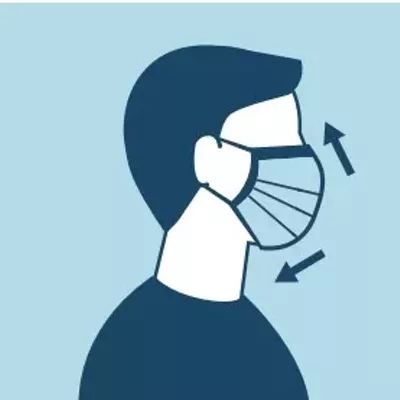People who believe this take a lot of seminars and go to movies like What the Bleep Do We Know!? and lack the sense to walk out. Philosophically, they don't like Bishop Berkeley or David Hume, believing that if a tree falls in the forest, and nobody hears it, then it doesn't make a sound. You'd have a hard time convincing them it really fell at all.
Others believe that regardless of our presence, the tree not only falls, but makes an ear-splitting sound, as does anything that gets squashed by it.
Reality is real, all right. Human understanding allows us to experience little parts of it, so that we can operate computers and can openers. But too much of the stuff can be as toxic as nerve gas, and to combat it, we all carry around "illusions." Think of "reality" as a mugger, and "illusions" as a can of pepper spray. That's what I'm talking about.
But it takes more than pepper spray to alter the fact that occasionally, our illusions get shattered. Mine got mugged pretty good recently while watching the news on television. Ostensibly, the story was about 143 million pounds of possibly tainted beef being recalled. Apparently, some sick cows got into the food supply. But this isn't the disturbing part: The disturbing part is that the standard for deciding whether an animal is worthy of slaughter is whether it can stand. It's in the best interests of the meat companies to keep all animals, sick or not, on their feet. The methods used to do this include forklifts, repeated electric shocks and spraying water down their noses with high-pressure hoses. Once the animal gets to its feet, it is ushered into the slaughter chute, pronto, before it can go down again.
The image that really sticks with me is a guy rolling a panicked cow around with a forklift. It bellows, eyes huge and terrified, but since it can't stand, it doesn't, and the operator keeps moving forward, lifting it, dropping it, then lifting it again, effectively rolling it around in stockyard feces until it's coated like a chocolate bar.
I'm sure I'm going to get a lot of e-mails from PETA-types saying things like, "Duh!" But I probably won't answer them. As human beings, we are all complicit in destroying this planet. There are too damn many of us, and whether I choose to be a vegetarian, or to not wear fur, or drive a car, is pretty irrelevant. The primary reason both plant and animal species are disappearing faster than a plate of chocolate-chip cookies at an Overeaters Anonymous meeting is habitat destruction. We all have to live somewhere, and every place we live, others can't. We need roads to get to our houses and fields to raise our grain. We need water to drink, and we routinely demolish entire ecosystems to get it. As a species, we are probably at the same stage of awareness that Elvis Presley was during those last few seconds on the can that fateful day at Graceland. We're starting to twig to the fact that something is terribly wrong, and that too much success can be a very bad thing.
But deliberate cruelty is different from passive, arguably inevitable complicity.
Years ago, a few minutes of imagery completely changed the way we eat lunch. No one had ever questioned the propriety of eating tuna sandwiches until seeing 30 seconds of footage on the evening news of giant nets winching dozens of dolphins hundreds of feet into the air, then letting them fall to their deaths. One videotape affected the tuna-eating public to the degree that within two years, the U.S. industry panicked, changed fishing practices and began labeling canned tuna "dolphin safe." We looked for that logo, too. Nobody wanted to be complicit in murdering Flipper.
A similar thing happened with the infamous Draize test in the late '80s. From its invention in 1944, the practice of putting concentrated caustic chemicals into the eyes of restrained bunny rabbits to see how they rated as irritants hadn't been scrutinized. But when most women found out about it, they didn't think mascara was worth it. Hence, the birth of cruelty-free products.
We have warm, fuzzy feelings about lots of animals, but generally not for livestock. This is a can of pepper spray we are not willing to put down. We have to eat, after all. But when an industry employs routine deliberate cruelty, and--as a society--we tolerate it, something has gone terribly wrong.
I'm not a vegetarian, but I have eaten my last hamburger. Not because I'm moral or superior or any of that shit, but because I'm pretty sure that from now on, when I think about ordering one, I'm going to see the terrified eyes of that brutalized cow, being rolled around in the stockyard shit.






